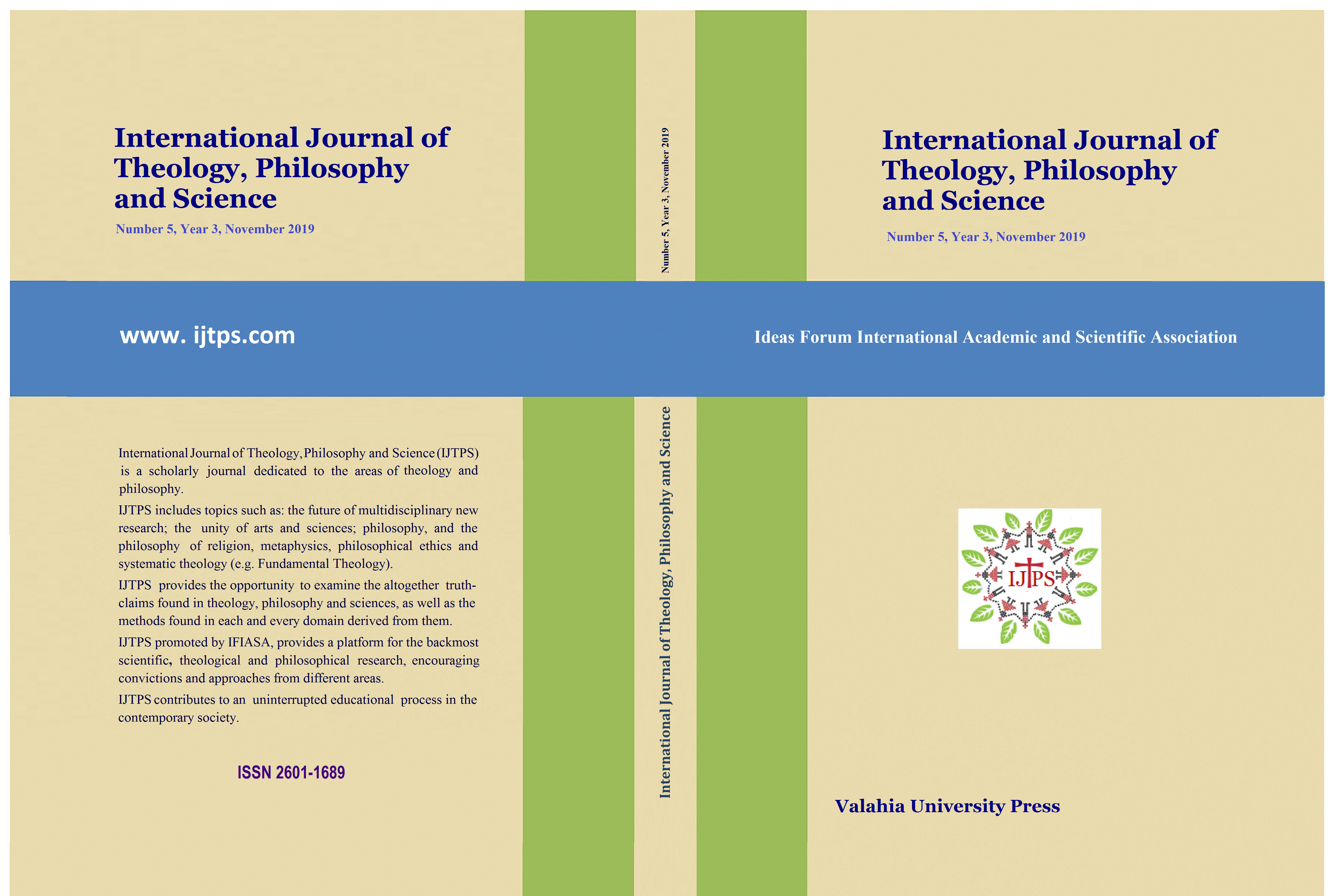A WRESTLING WITH THE GOD WHO WEEPS: FYODOR DOSTOEVSKY AND THE PHILOSOPHY OF JOSEPH SMITH
A WRESTLING WITH THE GOD WHO WEEPS: FYODOR DOSTOEVSKY AND THE PHILOSOPHY OF JOSEPH SMITH
Author(s): Spencer JUDDSubject(s): Philosophy, History of Philosophy, Metaphysics
Published by: Ideas Forum International Academic and Scientific Association
Keywords: Wrestling; God who Weeps; Fyodor Dostoevsky; Philosophy of Joseph Smith;
Summary/Abstract: This paper contains three acts, so to speak, each part analyzing approaches to thephilosophical Problem of Evil within the 19th century. This is done by juxtaposingsome of the strongest arguments over the Problem of Evil. Before going into thearguments themselves, I survey the movements of the 19th century and specificallyexamine a 19th century piece of art by Alexander Leloir, symbolizing man’s strugglewith God, and use his image as my model for channeling the following twoarguments. I then examine a piece of literature from the 19th century, The BrothersKaramazov, by Fyodor Dostoevsky, focusing specifically on his character IvanKaramazov’s critique of God in regard to the suffering of children and the innocent.Ivan gives one of the best articulations of the atheist critique of God’s amorality andallowance of evil. Following that, I examine the religious philosophy of a 19thcentury figure, Joseph Smith, whose contributions I attempt to show provide a validtheodicy for acquitting God from the Problem of Evil, due to the conception of God,Mankind, and a christogenic cosmos that Smith introduces. While an entireexhaustive treatment on the problem of evil would require a lot more space then thispaper can presently afford, this is a synthesized account of the compelling argumentsof each side. This paper isn’t to invalidate or delegitimize past, present, and futuresuffering. The rationalization of evil, even if it be with profound meaning, isn’tsufficient on its own to eradicate the consequences of evil, nor to fully comfort itsvictims. This exercise might untangle webs of logical confusion and cognitivedissonance, but it does not in of itself end the poverty in third world countries,horrific wars and acts of terror, bullying, prejudice, or homelessness, to name a fewexamples. I recognize that explanations for the horrors of history can sound trite and International Journal of Theology, Philosophy and ScienceNo. 5, Year 3/2019https://ijtps.com/ ISSN 2601-1697, ISSN-L 2601-1689IJTPS STUDIES AND ARTICLES © 2019 IFIASA Page | 13trivial, almost at times an insult. Even if Smith’s position proves logically coherent, Irecognize this paper has only solved the logical problem of evil rather than the actualproblem of evil in our world. It simply seeks to understand the problem and examineways that make it meaningful, rather than eradicating it. The problem cannot besolved through a logical proof on a chalkboard or in an argument through a paper.Nevertheless, all action is derived from how we think and what we desire, which inturn can be impacted by words and ideas, and for that I believe this paper holdsrelevant value. Hopefully these chambers of reflection serve as a catalyst to action, tocontribute a verse into the lessening of others’ suffering.
Journal: International Journal of Theology, Philosophy and Science
- Issue Year: 3/2019
- Issue No: 5
- Page Range: 12-41
- Page Count: 30
- Language: English

